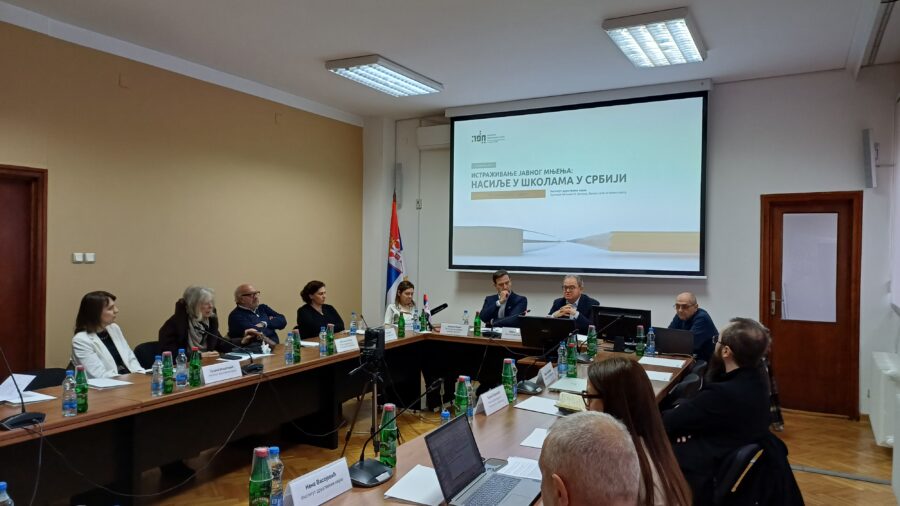Do we really know what our children experience at school and how frequent peer violence is? What are the effects of inclusion, who influences children’s education and in what ways, and do parents have difficulties in communication with teachers – and teachers with parents? These and many other questions are addressed by a new study conducted by the Institute of Social Sciences, presented at the round table “Public Opinion Research: Violence in Schools in Serbia.”
The research was carried out from November 2024 to April 2025 and covers a broad range of topics related to education, while this presentation focused specifically on findings related to different forms of violence in schools.
One of the key findings shows that a large number of teachers – nearly 40 percent – have been exposed to some form of violence in the workplace over the past five years. According to teachers’ testimonies, the most frequent perpetrators are school principals, followed by parents of students and the students themselves. More than 40 percent of teachers are dissatisfied with the way the authorities responded after they reported incidents of violence. Most believe that hiring more psychologists and engaging external mental health professionals who work with children would significantly improve the situation.
When it comes to violence among the students themselves, the research also showed an exceptionally high number of cases in which the perpetrators were not sanctioned – as many as 34.4 percent – while only 25.3 percent of parents are fully satisfied with how the incident of violence against their child was resolved.
The presentation of the findings was followed by an active and substantial discussion on various aspects of school violence, including violence against teachers and students, the recent tragic events at Vladislav Ribnikar Elementary School, as well as issues related to school discipline.
The research concept, methodology, and results were presented by Dr. Željka Buturović, Dr. Suzana Ignjatović, Dr. Bojan Todosijević, and Dr. Nena Vasojević. The discussion was moderated by Dr. Zoran Lutovac, and participants included Prof. Dr. Zoran Pavlović from the Department of Psychology at the Faculty of Philosophy, University of Belgrade, and Želimir Popov, former Deputy Minister of Education.
The round table was also attended by Jasmin Hodžić, State Secretary at the Ministry of Education, who shared his reflections on the findings and on the issues highlighted by the research.
The study was conducted within the project “Value Aspects of Security in the Educational System (2023–2025)”, implemented by the Institute of Social Sciences. Violence in the school environment in Serbia is a serious social issue that has not been sufficiently addressed through empirical research. By conducting this comprehensive public opinion survey on education and schools, the Institute of Social Sciences provides an important scientific contribution to understanding this complex and sensitive topic.

